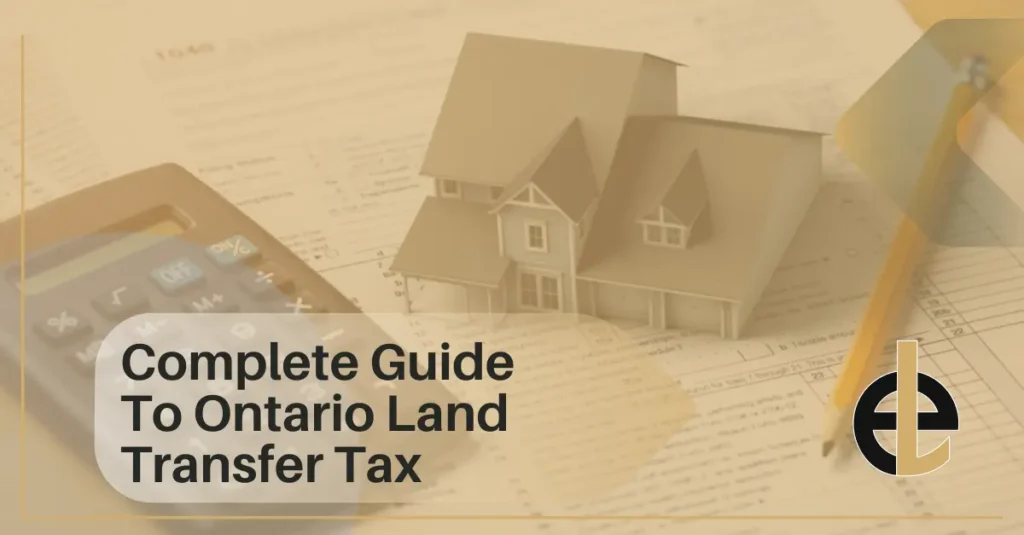A Complete Guide to Ontario Land Transfer Tax

Buying a home or condo is one of the biggest financial steps you will take in life. One cost that often surprises new buyers is the land transfer tax, which you need to pay at the end of the sale process. This fee is a key part of real estate deals in the province and applies to almost every purchase. A skilled real estate lawyer in Burlington can help you get to the bottom of costs that are part of the full picture. Taking time to understand how each fee works will help you plan better and make sure you are financially ready for the big step ahead.
A Simple Breakdown on How Ontario’s Land Transfer Tax Works
One of the biggest financial surprises when you buy a home is the land transfer tax (LTT). Many buyers assume the biggest expense is the purchase price, but it is the taxes can add thousands more to your final expense. To better explain how the Ontario land transfer tax is calculated, here’s an example if your home is $475,000.
Knowing how to calculate land transfer tax helps you avoid surprises when it is time for the closing. It also makes it easier for you to set a realistic price range based on what you can afford.
A Closer Look at the Extra Fees Involved in Buying a Home
The total cost of buying a home is more than the price listed. There are many home buying costs to think about, including title searches, inspection charges, and closing paperwork. These costs often fall under what people call the real estate deal costs, which can total thousands of dollars. Learning about each part of the process helps you understand the land transfer tax, as well as the extra expenses that come with it.
Taxes, Assessments, and Legal Steps to Know About
Other than the land transfer tax, buyers must also deal with things like the Ontario real estate tax and land registration fees, which apply to updating public land records. In rare cases, buyers run into common real estate disputes such as unpaid liens or ownership confusion. This is why title checks and legal advice are critical before you proceed with the sale.

Another factor that can affect your tax total is the property value assessment. This is used by local cities to estimate how much your home is worth for tax purposes. If the value goes up, your annual taxes may rise too.
Remember: any missing papers or errors can delay the rebate or even cause legal issues. Meeting all the requirements for filing a land transfer document early can help make your experience smoother. Planning early for land transfer tax in Ontario also gives you more time to sail seamlessly through the process rather than worrying about delays caused by paperwork or legal checks.
First-Time Homebuyer Rebate: Who Qualifies and Why It Exists
The rebate for first-time homebuyers was designed to help new buyers lower the financial load of closing costs. It makes buying a home more reachable by returning part or all of the land transfer tax.
You may be eligible if you are:
For new builds, the home should come with a warranty. The refund application must be made within 18 months of purchase.
Calculating How the Rebate Affects Your Land Transfer Tax
This refund can offer up to $4,000 to help cover the land transfer tax Ontario buyers are required to pay. Your real estate attorney in Ontario can assist in making sure the forms are filled out correctly. Homes priced under $368,000 may see the full tax wiped out, depending on the exact purchase amount. On the other hand, your rebate will be $4,000 for a home that is valued at $500,000, while the tax you owe is equal to $3,475. You can utilize the rest of the rebate for things like moving or any repairs in your home.
How Tax Rates Work Based on Property Price
The provincial government tax rates set out how much land transfer tax you pay, based on your home price. This tax follows a tiered system. The more costly the home, the higher the tax bracket. Here is the current rate structure:
These rates are key to paying land transfer tax correctly, and they come into play during closing. The older numbers may still apply to estate sales or transfers between family. This is why knowing the tax calculation formula from past years could still matter, depending on your situation.
How Toronto’s Extra Land Tax Compares with the Rest of Ontario
Toronto has its own rules when it comes to LTT. You pay a municipal land transfer tax with the province-wide tax as a homebuyer in Toronto. The city does offer its own rebate for first-time buyers. However, it only applies within city limits.
Additional Taxes for Foreign Buyers
Foreign buyers in Ontario must now pay a 25% Non-Resident Speculation Tax (NRST) on top of the regular tax. This group also pays the property transfer tax which raises the overall cost of owning property. This change was meant to slow price growth and create more chances for local buyers.
Legal and Financial Aspects of LTT to Watch Out For
The entire home purchase process is known as the conveyancing process. It includes signing contracts and transferring funds. It also involves title checks and taxes. Buyers should also know the different types of title transfers, such as those between family members and in case of divorce. These may qualify for transfer tax exemptions if done correctly.

You need reliable legal help during this stage to steer clear of costly legal issues and unnecessary delays. There are also closing costs for property that often include title insurance and taxes. These costs are separate from the land transfer tax but are just as vital to plan for.
Final Notes on LTT in Ontario
It is crucial to know how the land transfer tax works if you are planning to buy or sell property in Ontario. At Estofa Law, we make sure that our clients understand each fee and know what documents are needed, so that they can stay on budget and avoid delays.
Book a consultation with our experts today to get the basics of the system right and let us help your deal go more smoothly. We handle the complex legal aspects while you focus worry-free on the exciting part: moving into your new home!

